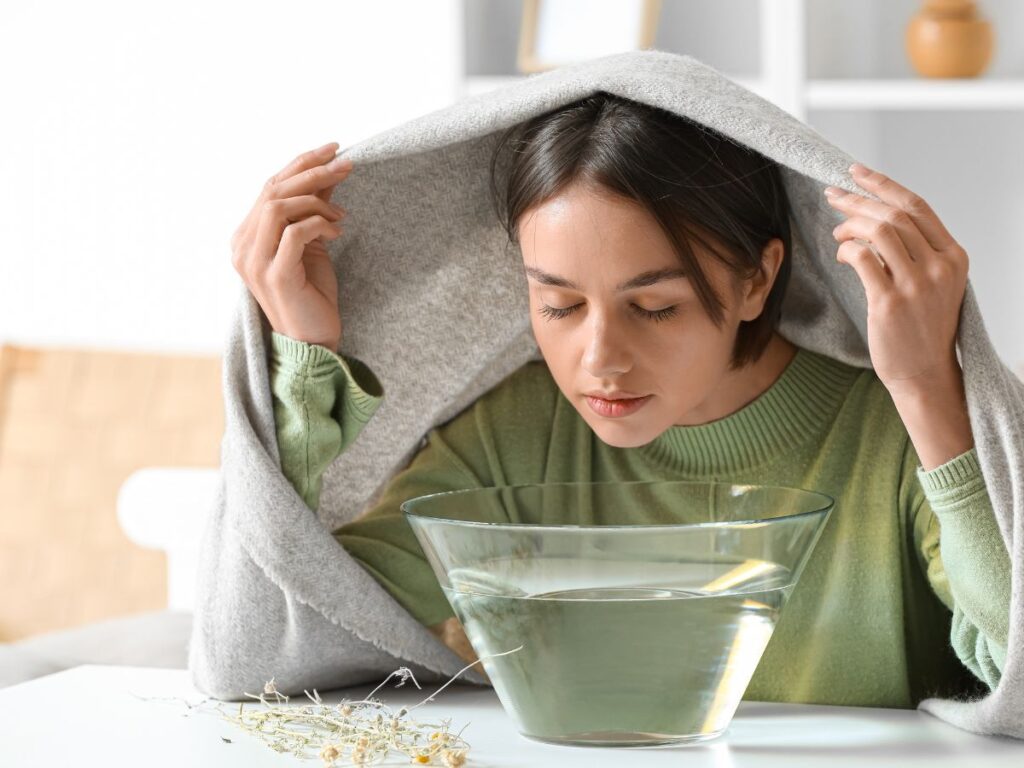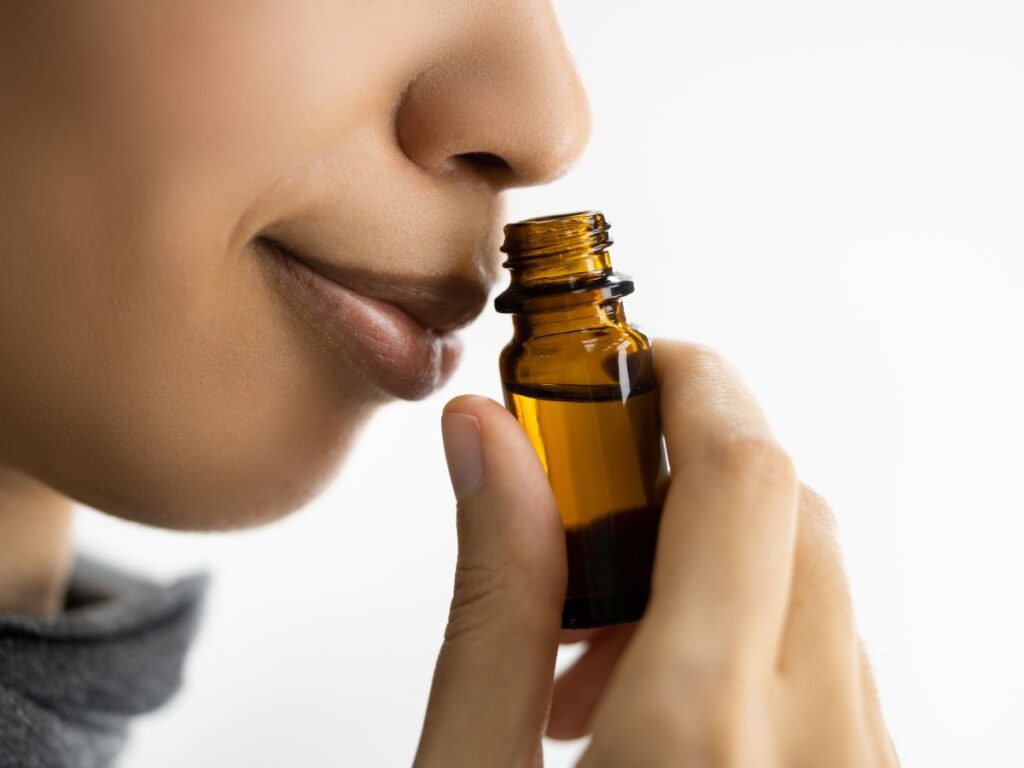What is Sinus Infection?
Sinus infection is a common condition, which affects many people every year. The infection causes inflammation in your sinuses and nasal passages, a condition called sinusitis. One can also try home remedies when suffering from sinusitis.
Some home remedies may worsen your problem so you should not try them. What you should avoid if you are also suffering from science infection we know with the help of this blog; In case of any severe infection in this cold weather, get a doctor’s appointment.

What Causes Sinus and Sinusitis?
Sinus problems occur when mucus starts to build up in your face behind your nose, ears, and cheeks. This causes swelling in these parts. The sinuses produce mucus. Sometimes bacteria cause excessive mucus production.
If you have a cold or allergies, the mucus may thicken. Bacteria and other germs can accumulate in the bones. This can lead to bacterial and viral infections. Most sinus infections are viral. It can happen repeatedly in some adults or people with asthma. Which can cause fatigue and headache.
Signs of Sinus:
If you suffer from cyanosis, you may experience symptoms such as;
1. Yellow or Green Nasal Discharge:
- Cyanosis may manifest with abnormal nasal secretions, often appearing yellow or green.
- The color change in mucus indicates potential infection or inflammation in the respiratory system.
2. Nasal Congestion:
- Individuals experiencing cyanosis may encounter nasal congestion.
- Swelling and irritation in the nasal passages can contribute to difficulty breathing through the nose.
3. Swelling Around Cheeks and Eyes:
- Cyanosis can lead to facial swelling, particularly around the cheeks and eyes.
- This symptom is often associated with sinus congestion and inflammation.
4. Headache and Toothache:
- Sufferers of cyanosis may experience headaches, possibly due to sinus pressure and congestion.
- Toothache can also be a result of increased pressure in the sinus cavities affecting adjacent dental structures.
5. Decreased Sense of Smell and Bad Breath:
- Cyanosis can contribute to a diminished sense of smell.
- Bad breath may accompany this condition, often linked to nasal congestion and the presence of infection or inflammation in the respiratory tract.
Signs of Sinusitis:
Sinusitis refers to the inflammation of the sinuses, which are hollow cavities located around the nasal passages. These cavities produce mucus, which helps humidify the air we breathe.
When the sinuses become inflamed, they can lead to a variety of symptoms and discomfort.
Causes:
- Infection: Bacterial, viral, or fungal infections can trigger sinusitis.
- Allergies: Exposure to allergens may result in an allergic reaction, leading to sinus inflammation.
- Nasal Polyps: Abnormal growths in the nasal passages can obstruct sinus drainage, contributing to inflammation.
- Deviated Septum: A crooked or deviated nasal septum can impede proper sinus drainage.
Symptoms:
- Nasal Congestion: Difficulty breathing through the nose due to swelling and blockage.
- Facial Pain or Pressure: Discomfort in the forehead, cheeks, or around the eyes.
- Discolored Nasal Discharge: Yellow or green mucus indicative of infection.
- Coughing: Especially at night, often worsened by drainage of mucus down the throat.
- Headache: Typically felt in the forehead region.
- Fatigue: General tiredness and a feeling of being unwell.
A healthcare professional may diagnose sinusitis based on a patient’s medical history, symptoms, and a physical examination. In some cases, imaging studies or endoscopy may be recommended.
Treatment:
- Home Remedies: Rest, hydration, and steam inhalation to alleviate symptoms.
- Medications: Decongestants, antihistamines, or antibiotics, depending on the cause.
- Nasal Irrigation: Rinsing the nasal passages with saline solution to promote drainage.
- Surgery: In severe cases or when structural issues are present, surgical intervention may be considered.
Prevention:
- Hydration: Maintain proper hydration to keep nasal passages moist.
- Allergen Control: Manage exposure to allergens triggering sinusitis.
- Hand Hygiene: Reduce the risk of infections through regular handwashing.
- Avoid Smoking: Smoking can exacerbate sinusitis symptoms.
Individuals experiencing persistent or severe symptoms should consult a healthcare professional for accurate diagnosis and appropriate management.
Children who suffer from sinus infections may be more irritable. They may also have difficulty eating. If the symptoms of sinusitis do not improve quickly, you should see a doctor as soon as possible.
What Should Be Done in Sinus Infection?
If you are suffering from a sinus infection, we know what tips to avoid and what to try;
Do Not Put Oil in The Nose
If you are into science, you should never use any oil in the nostrils. Rather than putting any oil in your nose, it is better to steam the oil by adding it to warm water. So avoid putting oil in your nose.

Unnecessary Drug Use
Using unnecessary medicines in any disease can be harmful for you. The doctor says that most people agree to take antibiotics when they’re sick, but if the symptoms last less than a week, you don’t need to take unnecessary medications.
Due to continuous use of antibiotics, you may face side effects like stomach and intestinal problems etc.
Honey For Babies
About Honey You all know that honey is useful for soothing sore throats, but it should never be given to children under one year of age. Studies show that honey helps us fight germs.
Honey contains antioxidants and antimicrobial and anti-inflammatory properties. According to Pedia Tricks, never give honey to children under one year of age.
Sterilized Water
If you are suffering from sinus infection then you should never use tap water as it can increase the germs. So always use pure water, it is also good for your overall health. You should use boiled water in this condition. Boiled water can protect you from germs.
Conclusion: Navigating Sinus Infection Safely
In conclusion, sinus infection, or sinusitis, is a common ailment with various causes and symptoms. While home remedies can offer relief, it’s crucial to exercise caution and avoid potentially harmful practices. Understanding the signs of sinusitis, such as nasal congestion, facial pain, and discolored nasal discharge, is essential for prompt diagnosis and appropriate treatment.
By being mindful of these precautions and understanding effective strategies for managing sinusitis, individuals can navigate this common condition with greater safety and ensure optimal recovery.
Always consult a healthcare professional for personalized advice and guidance, particularly when dealing with sinus infections in children.
Sinus Infection Sinus Infection Sinus Infection Sinus Infection Sinus Infection Sinus Infection Sinus Infection Sinus Infection


